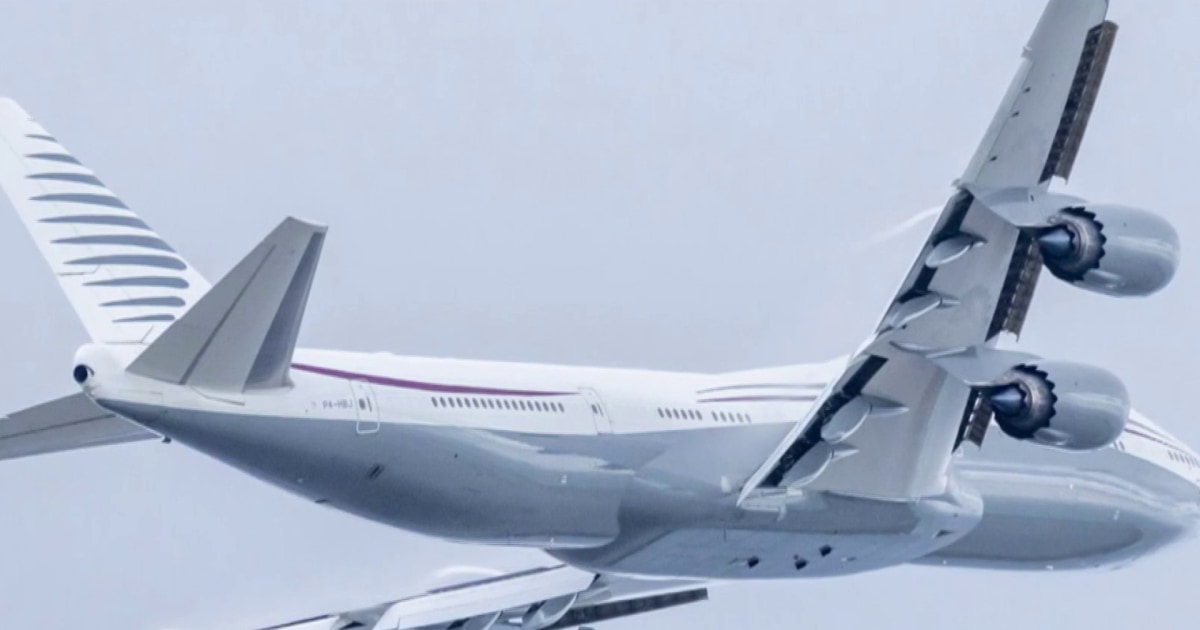Inside the Deal: How a Luxury Jet from Qatar Could Reshape Trump’s Business Empire
Former President Donald Trump is poised to acquire a state-of-the-art luxury jet from Qatar, a transaction raising eyebrows among ethics watchdogs and foreign policy experts. The deal, negotiated during Trump’s presidency but finalized post-office, could significantly bolster his aviation assets while reigniting debates about potential conflicts between his business interests and international diplomacy. Sources close to the matter reveal the Boeing 747-8i, valued at over $350 million, may become the new flagship of Trump’s private fleet.
The Anatomy of the High-Flying Transaction
Qatar’s government originally purchased the jumbo jet in 2017 for its head of state, but the aircraft saw limited use before being offered to Trump Organization executives through backchannel negotiations. Aviation industry insiders confirm the plane features:
- Fully customized VIP interior with gold-plated fixtures
- Range of 8,000 nautical miles (capable of nonstop DC-Doha flights)
- Advanced missile defense systems installed
- Conference rooms convertible to luxury sleeping quarters
“This isn’t just a plane—it’s a flying five-star hotel with geopolitical implications,” notes Jonathan Barnes, senior analyst at Aviation Week. “The timing raises legitimate questions about whether this represents a business transaction or a diplomatic favor.”
Political Fallout and Ethical Concerns
Government ethics experts point to the deal’s proximity to several Qatar-related policy decisions during Trump’s administration. In 2018, the White House notably:
- Approved $12 billion in weapons sales to Qatar
- Mediated the Gulf diplomatic crisis favoring Qatari interests
- Fast-tracked visa approvals for Qatari investors in Trump properties
“The pattern suggests potential quid pro quo arrangements,” asserts Dr. Lila Montgomery of the Brookings Institution. “While not illegal for a former president to accept such assets, the optics create troubling narratives about how foreign governments might curry favor with U.S. leaders.”
Trump Organization representatives counter these claims, stating the purchase followed standard commercial procedures. “This was an arms-length transaction at fair market value,” spokesperson Amanda Miller told reporters. “The Trump Organization routinely upgrades its assets, and aviation represents a growing sector of our portfolio.”
The Business Implications for Trump’s Ventures
The acquisition comes as Trump’s business empire seeks to rebound from pandemic-era losses and legal challenges. Financial disclosures reveal:
- Trump’s aviation assets grew 28% in value since 2020
- Mar-a-Lago’s initiation fee doubled to $500,000 post-presidency
- International licensing deals now comprise 42% of Trump Organization revenue
Leveraging Presidential Cachet in Global Markets
The luxury jet could serve multiple strategic purposes for Trump’s business interests:
- Brand Enhancement: Positioning Trump properties as ultra-exclusive destinations
- Operational Flexibility: Enabling rapid movement between international projects
- Political Networking: Facilitating discreet meetings with global power brokers
“Air Force One created unparalleled branding opportunities,” observes marketing strategist Rachel Goldstein. “Now he’s essentially creating a private version—complete with the mystique of Middle Eastern luxury.”
Geopolitical Repercussions and Diplomatic Calculus
The transaction occurs amid shifting alliances in the Gulf region. Qatar has emerged as:
- The world’s largest LNG exporter since Russia’s Ukraine invasion
- A key mediator in Middle Eastern conflicts
- Host of major sporting events like the 2022 FIFA World Cup
Former State Department official Thomas Whitaker warns: “This deal could complicate U.S. neutrality in Gulf disputes. When private citizens—especially former presidents—become financial beneficiaries of foreign governments, it creates perception problems for current administrations.”
Legal and Regulatory Considerations
While the Emoluments Clause no longer applies post-presidency, several oversight mechanisms could scrutinize the deal:
- Committee on Foreign Investment in the United States (CFIUS) review
- FAA certification requirements for foreign-modified aircraft
- Potential IRS scrutiny of asset valuation methods
Tax records show Trump previously claimed $26.5 million in tax deductions for aircraft depreciation between 2010-2018, suggesting aggressive asset management strategies.
What Comes Next: Aviation, Politics, and Business Collide
The luxury jet acquisition marks a new chapter in the blurred lines between Trump’s political legacy and business ambitions. Industry analysts predict:
- Increased foreign interest in Trump-branded hospitality ventures
- Potential expansion of Trump aviation services in emerging markets
- Ongoing scrutiny from congressional oversight committees
As the 2024 election cycle approaches, this deal may serve as a litmus test for how voters perceive the intersection of wealth, power, and diplomacy. For ongoing analysis of political-business entanglements, subscribe to our investigative newsletter.
See more Business Focus Insider Team

